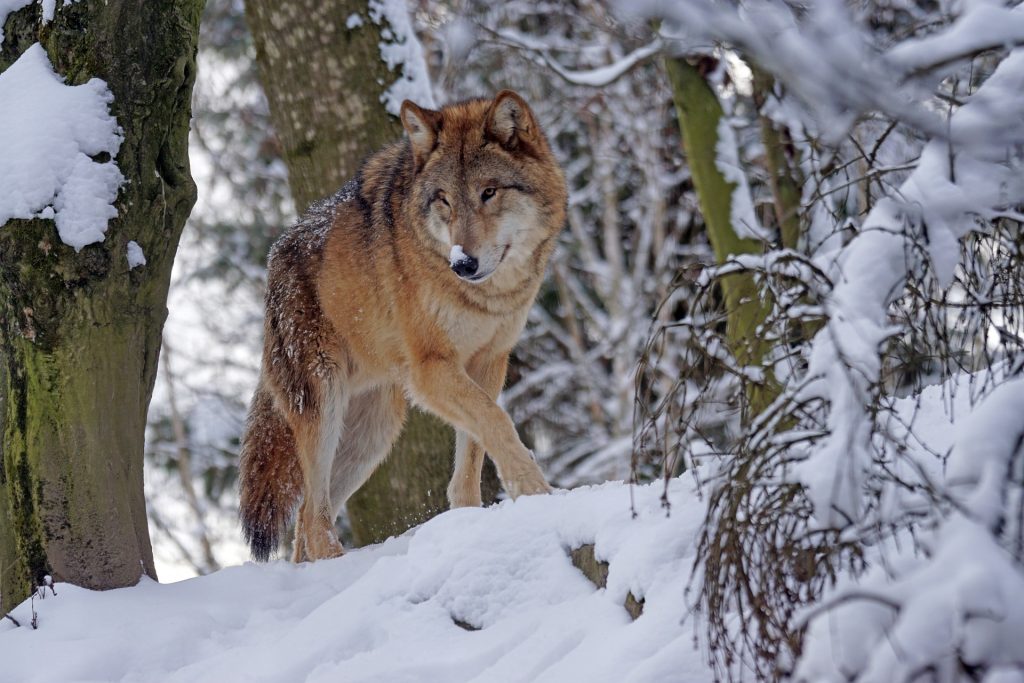By RaeLynn Ricarte
The Washington Department of Fish and Wildlife called off the second hunt this fall for a wolf from the Leadpoint pack after finding several cattle carcasses on one of the affected ranch properties that had not been disposed of.
“Since the discovery of the carcasses, there have been no active lethal removal attempts in the Leadpoint pack territory, and Director [Kelly] Susewind rescinded the lethal removal authorization on Oct. 12,” stated a post from the agency on Thursday morning.
The problem with that decision is that the rancher experiencing the most Leadpoint-related losses this year does not own the property where the carcasses were found, said Scott Nielsen, president of the Stevens County Cattlemen’s Association and a board member of Washington Cattle Producers.
“These attacks have been a chronic problem for that rancher and now he’s been left holding the bag,” he told The Center Square.
He pointed to WDFW’s acknowledgement that the problems primarily concerned the one rancher in its Oct. 9 notice about the second hunt.
“The Leadpoint pack has demonstrated a pattern of depredating on cattle despite the use of nonlethal tools including range riding, human presence, a RAG box, and Fox lights. Before Oct. 7, depredations were limited to one producer’s private pasture, but the pack has since depredated on a neighboring pasture despite range riding activity and a high level of human presence,” the notice said. “Based on this assessment, WDFW staff believe depredations are likely to continue.”
Nielsen said the agency called that one right. The beleaguered rancher experienced another attack on his herd this week. His family’s losses on private land in Stevens County have been high enough to trigger recent hunts for both Leadpoint and Smackout pack members.
State policy allows a hunt of packs that kill or injure livestock three times within 30 days or four times within 10 months. The rancher must demonstrate that non-lethal measures failed to work before a wolf can be euthanized.
The grim scenario now playing out on the one ranch has led the family not to exercise deeded grazing rights in the Colville National Forest, which is home to both packs, despite the fact they pay an administrative fee to do so.
“This family has got a wildlife management problem and the wildlife managers are doing nothing to fix it,” said Nielsen.
The carcasses that were discovered by WDFW staff before this week’s planned hunt were in a remote location and were already in an advance stage of decomposition, he said.
The remains did not show signs of wolf activity, he said. The purpose of burying a carcass is to avoid attractants for predators but that was not the case in the current scenario, he said.
“Why eat on a carcass when there is plenty of fresh meat around?” asked Nielsen. “The rancher with the initial problems has jumped through every hoop to cooperate with WDFW and he is just left to fend for himself with absolutely no relief in sight.”
Susewind authorized lethal removal of one more wolf from the Leadpoint pack after euthanizing two wolves in September that failed to stop depredation of cattle in Northeastern Washington.
Nielsen said the state’s wolf management plan requires livestock owners to try two or more non-lethal deterrents, such as fencing, lights and noise devices, before a hunt can be considered. He said burying carcasses is one of the deterrents on that list, but it is an option and not a legal requirement.
“It seems as if WDFW is now looking for any excuse not to have to follow its own management plan and that has destroyed trust with ranchers who can’t get any relief from problem wolves,” he said.
Originally published by The Center Square. Republished with permission.
RaeLynn Ricarte is the author of two books and an award-winning editor and reporter with more than 25 years in the newsroom. She now covers government in Eastern Washington for The Center Square.
